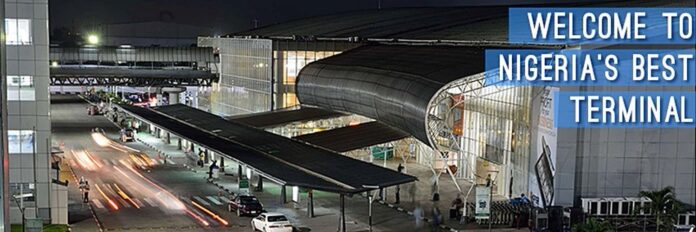The Federal Government of Nigeria is considering the possibility of shutting down the General Aviation Terminal (GAT) at the Nnamdi Azikiwe International Airport in Abuja, due to serious concerns over criminal activities taking place in the terminal. Reports suggest that the VIP section of the airport, which serves private jet owners and charter aircraft services, has become a hotspot for illegal operations such as money laundering, human trafficking, and drug smuggling.
The General Aviation Terminal is where private jets and other non-commercial aircraft operate. The GAT has been in the spotlight lately because of increasing reports of illegal activities taking place under the guise of legitimate aviation operations. Festus Keyamo, the Minister of Aviation and Aerospace Development, expressed serious concern after receiving a report from a seven-member ministerial task force on illegal private charter operations.
The task force found that private jet owners, who are supposed to be using their planes under the Permit for Non-Commercial Flight (PNCF), have been using these aircraft for criminal activities. This issue has become widespread in the aviation sector, with many aircraft owners using the PNCF to carry out illegal transactions.
When Keyamo assumed office as the Minister of Aviation, he was advised to overlook the problem, with many suggesting that it would be difficult to regulate the holders of the PNCF. These individuals, it was said, are influential figures in society, making it nearly impossible for authorities to take action against them. However, Keyamo, with his experience as a former prosecutor with the Economic and Financial Crimes Commission (EFCC), made it clear that he would not back down. He vowed to address the problem head-on, stating that his duty was to take on powerful individuals involved in illegal activities, regardless of their status in society.
Keyamo referred to the issue as a national security concern, noting that the Nigeria Civil Aviation Authority (NCAA) has been unable to properly regulate the operations of PNCF holders. This lack of regulation has allowed for illegal charter services to thrive, enabling money laundering, drug and human trafficking, and even the illegal entry and exit of people from Nigeria.
The minister assured the public that his ministry would carefully review the report and its recommendations. He promised that no matter how sensitive the issue, it would not be ignored. In fact, Keyamo went further to say that if shutting down the General Aviation Terminal was necessary to bring order to the country’s aviation sector, then it would be done. This move, he said, would ensure that illegal charter services could no longer operate unchecked.
Captain Ado Sanusi, who chaired the ministerial task force, presented the group’s findings and recommendations. According to Sanusi, the illegal operations at the GAT are not only a threat to aviation safety, but they also create an unfair playing field for legitimate aircraft operators. Sanusi emphasized that there are significant loopholes in the current regulatory system for non-commercial flights, which make it easy for criminals to exploit the system.
The report also revealed that the Nigerian government has lost over N120 billion in revenue in the last decade due to the prevalence of illegal charter operations. This loss, Sanusi said, highlights the extent of the problem and the need for immediate action to curb these illegal activities.
One of the most alarming findings in the task force’s report was the involvement of the GAT in criminal activities. According to the International Civil Aviation Organisation (ICAO), 90 percent of criminal activities in Nigeria’s aviation sector occur at the General Aviation Terminal in Abuja. These activities include money laundering, drug trafficking, and the illegal transfer of fugitives, all of which take place within the terminal.
Given the severity of the situation, the task force has called for the immediate shutdown of the GAT. The report suggests that the terminal should be closed temporarily for a thorough reorganization before it is reopened for legitimate business operations. The committee believes that these steps will not only help reduce the number of illegal activities but also create a more structured and efficient aviation sector that can generate proper revenue for the government.
In response to the task force’s recommendations, Minister Keyamo stated that he would submit the report to the Presidency for further action. He also directed the Nigeria Civil Aviation Authority (NCAA) to publish a list of legal PNCF holders in national newspapers and display it at airports to help curb illegal operators from taking advantage of the system.
Keyamo also revealed that the government is currently investigating a commercial foreign airline that has been accused by the National Drug Law Enforcement Agency (NDLEA) of being involved in facilitating drug trafficking in Nigeria. This investigation is particularly concerning, as it shows that even commercial airlines, which are heavily regulated, could be involved in such criminal activities. If commercial airlines can be involved, Keyamo noted, then private jet owners may be even more prone to engaging in illegal acts.
The minister’s firm stance on tackling illegal operations in Nigeria’s aviation sector highlights the government’s commitment to cleaning up the industry and ensuring that the country’s airspace remains secure. As discussions continue about how to best implement the recommendations in the report, many Nigerians are watching closely to see what actions the government will take to restore order and prevent further abuse of the aviation sector.
The proposed shutdown of the General Aviation Terminal is just one of many measures being considered to bring stability and integrity to Nigeria’s aviation industry. If implemented, it would be a significant move toward eliminating illegal activities at the Nnamdi Azikiwe International Airport and potentially setting a precedent for how such issues are handled at other airports across the country.

